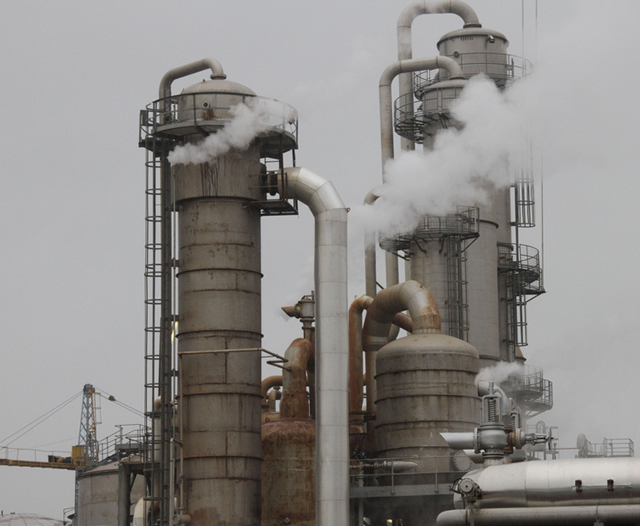
The Sunday Mail

Corporate bodies and industry are individually importing and stockpiling unblended petrol from neighbouring countries to avoid as much as possible using a Government-mandated fuel blend, it has been learnt.
The companies will use this fuel for their own production purposes as they are opposed to mandatory blending of anhydrous ethanol with unleaded petrol.
Government recently increased the mandatory blending level of anhydrous ethanol with unleaded petrol from 10 percent (E10) to 15 percent (E15), sparking outrage among some captains of industry and motorists.
Association for Businesses in Zimbabwe chief executive officer Mr Lucky Mlilo said: “We have members complaining about the decision because it is said that E15 is not suitable for most of the vehicles we have here in Zimbabwe.
“We are concerned because we feel consultations should have been made before the decision was made. We could have debated the issue widely and useful ideas could have come out during the process.
“The other thing is that no studies have been done to establish the impact of E15 on ex-Japanese cars which make up the majority of the national fleet. As a result some companies are now resorting to buying unleaded petrol from neighbouring countries for stock.”
The Confederations of Zimbabwe Industries was coy on how its members were responding to E15, but also insisted that consultations should have been done.
“We don’t welcome it, we don’t condemn it: but we feel prior consultations and homework was not done thoroughly. We also feel that consultations should have been made before the decision was taken.”
According to research, ethanol blends reduce fuel mileage, increase metal corrosion, cause deterioration of plastic and rubber fuel system components and clog fuel injectors.
Investigations show that many manufacturers of major auto, marine, motorcycle, lawn equipment and generators have issued warnings and precautions about the use of ethanol blended petrol.
At the same time, locally available ethanol for blending reduces the fuel import bill. Further, blended petrol is much cheaper.
Energy and Power Development Minister Dzikamai Mavhaire has said people criticising E15 are “childish and too young” as Zimbabwe once used E25 without harm.
Research shows that introduction of E15 will cut the fuel bill which currently stands at US$50 million monthly, by 20 percent. Since the introduction of mandatory blending, the country has saved about US$4 million each month.
Observers have, however, said Government should allow simultaneous sale of both options, with people choosing which one they wanted.
Others say an alternative solution is to modify engine components such as carburetrors, fuel pumps, and ignition system and catalyc converters so that they work well with blends.
In a statement last week, the Zimbabwe Energy Regulatory Authority said E15 was safe for use on all vehicles.
“The public is advised that the quality specification of E15 fuel conforms to the Standards Association of Zimbabwe Standard: ZWS964 Part 5,” said Zera in a statement.
According to research by National Renewable Energy Laboratory in the US, there were no malfunctions on tested vehicle engines using ethanol blends of up to 20 percent.
“This preliminary report found that none of the vehicles displayed a malfunction indicator light as a result of the ethanol blend used, no fuel filter plugging symptoms were observed, no cold start problems were observed at 24 and 10 degrees Celsius.
“However, as expected, all test vehicles exhibited a loss in fuel economy proportional with the lower energy density of ethanol, for example, with E20, the average reduction in fuel economy was 7,7 percent when compared to the distance achieved by test vehicles running on unleaded petrol.”
There are about 30 countries in the world where low ethanol blends of E5 to E20 are mandatory, including Malawi, Canada, India, Jamaica, Brazil, Colombia and Sweden.
In Zimbabwe, ethanol is extracted from sugar cane at Chisumbanje Ethanol Plant in Manicaland.
Zimbabwe has vast tracks of land under sugar cane production and the multi-million-dollar ethanol plant in Chisumbanje is expected to cut the nation’s fuel import bill.
With fossil fuels getting dirtier, costlier and riskier to extract — such as the oil spill in the Gulf of Mexico a few years ago — huge multinationals like Shell and BP are investing heavily in alternatives, including ethanol technologies.
Local industries, though, remain sceptical. Willowvale Mazda Motor Industries managing director Engineer Dawson Mareya was last week quoted in The Herald condemning E15 saying only vehicles designed specifically for the commodity were compatible with it.
However, mechanical engineering expert Engineer Clement Shonhiwa said there was no basis to WMMI claims.
“It is no true that E15 is not compatible with some Mazda vehicles because malfunction occurs in places where temperatures become less than 11 degrees Celsius, which is not common in Zimbabwe,” he said.
“In my view we can use E15 in Mazda vehicle because its effects are minimal in Zimbabwean conditions, but above E20 the effects will be significant. Generally our temperatures are good.”





